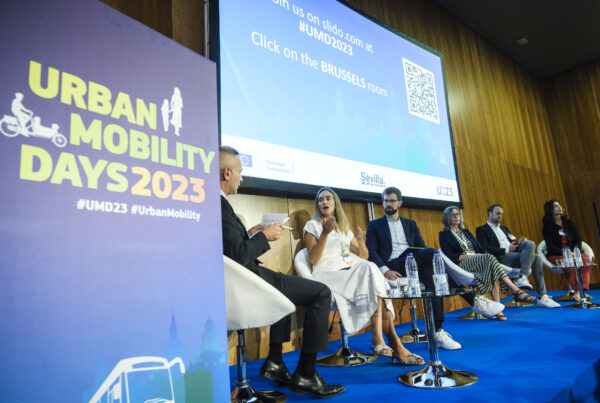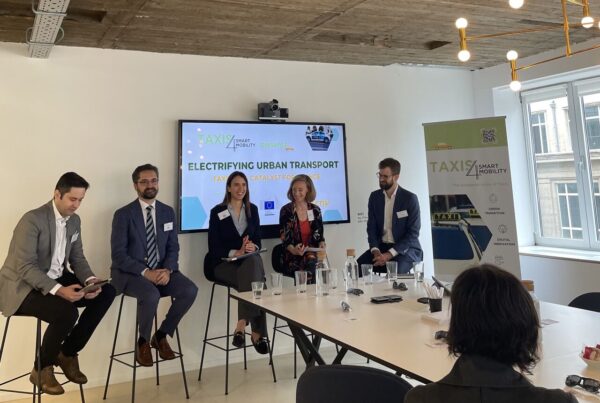
The aim of this event, taking place immediately after the EU Sustainable Energy Week, is to provide a high-level discussion, including sharing of best practices from various stakeholders as well as policy approaches to ensure that the future of mobility can be sustainable, innovative, socially responsible and safe at European and local level. Find more details below.
Programme:
-
9:30 – 10:00: Arrival (Breakfast included)
• 10:00 – 11:45: Introduction by Sean Goulding Carroll and panel discussion including audience participation and questions
-
11:45 – 12:30: Networking moment and coffee
Moderated by

Sean Goulding Carroll
Meet the Speakers




Electric Taxis and the Electricity Grid: The Critical Role of Charging Infrastructure in the Transition to Electric Mobility
With transport accounting for the EU’s largest source of greenhouse gas emissions[1], and cities hosting the majority of the EU’s population, accelerating urban mobility’s green transition is key in our fight against climate change. In this respect, the Commission is currently working on a number of initiatives to address this issue, such as the Greening Corporate Fleet Initiative, which could provide a unique opportunity to incentivise the taxi sector.
Taxis are at the forefront of the urban green transition, as they represent a transport option fit for the future. As a highly visible mode of transport and the biggest fleet in Europe, taxis can contribute significantly to the shift towards greener mobility by creating awareness of the benefits of e-mobility.
Sustainable cities will indeed see the number of individual car rides decrease, while public transport will increase[2]. In this context, Taxis will provide a flexible and sustainable transport solution for all. The essence of taxi services indeed rely on flexibility, providing car-sharing services as well as a sustainable public transport option to people with disabilities, unable to take trams, metros, buses, etc.
Taxi fleets face great challenges to finance and accelerate their green transition and thus meet the EU’s climate targets. Regulatory incentives are, in that sense, crucial and must not be underestimated by legislators. At T4SM we believe that sustainable and smart mobility will only be possible through European and local coordination, based on a clear legal framework.





